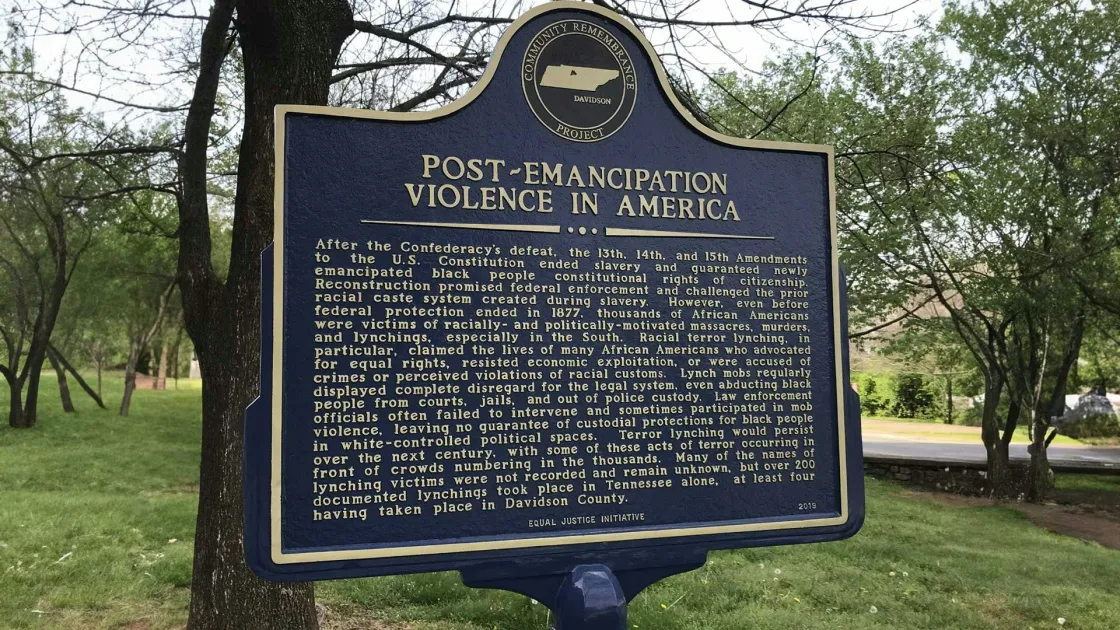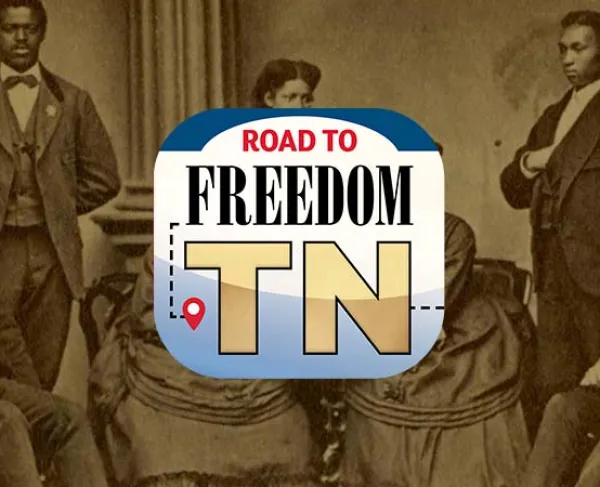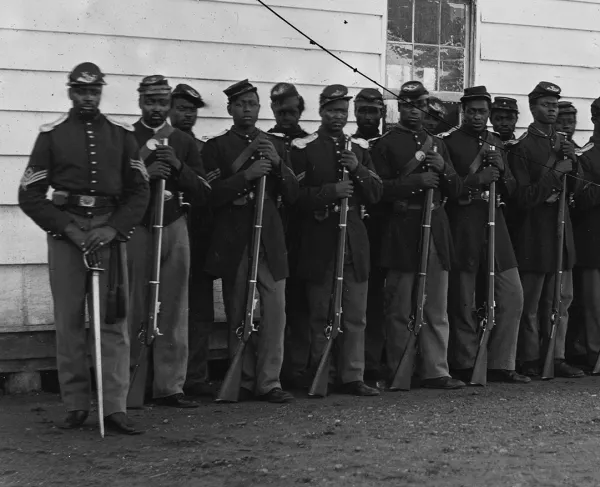Lynchings Of David Jones & Jo Reed
Tennessee
Bicentennial Park
opposite 222 1st Avenue
Nashville, TN 37201
United States
This heritage site is a part of the American Battlefield Trust's Road to Freedom: Tennessee Tour Guide app, which showcases sites integral to the Black experience during the Civil War era. Download the FREE app now.

The Davidson County Jail stood near here, on what was called Water Street, or Front Street, throughout most of the 19th century. Despite the duty of law enforcement to provide custodial protection, the jail was a repeated site of lynchings and violence that devastated the African American community.
On March 25, 1872, a white mob forcibly removed a Black man named David Jones from the jail, shot him twice, and hung him from a lamp post in Public Square. Though police officers cut Mr. Jones down and dispersed the crowd, he died hours later from his injuries.
On the night of April 30, 1875, a mob abducted another Black man named Jo Reed from the county jail and dragged him to the nearby suspension bridge, at the current site of the Woodland Street Bridge. In front of a large crowd of onlookers, Mr. Reed was shot multiple times in the head and hanged from the bridge. His body was abandoned to the Cumberland River after the rope broke and he fell into the water below.
These lynchings were acts of racial terrorism, often committed without intervention by law enforcement officials and commonly left unpunished. Each lynching in Davidson County created trauma and pain, while reinforcing white supremacy and denying African Americans in the community their basic rights. We remember these events in support of justice, human rights, and decency for all.”
These words appear on a historical marker placed here in 2019 by We Remember Nashville, in partnership with the Equal Justice Initiative which funded the project. Davidson County approved the siting of the marker in this park near the site of the old jail. Jo Reed’s lynching prompted some Black leaders to encourage thousands of “Exodusters” to leave Tennessee for states which seemed to promise more freedom and less terror.




